University Nursing Informatics: Client Care and Safety Report
VerifiedAdded on 2021/04/17
|5
|767
|121
Report
AI Summary
This report delves into the critical role of nursing informatics within healthcare systems, emphasizing its impact on enhancing service delivery and improving patient care. It explores how the integration of healthcare processes with IT systems leads to increased efficiency and quality of care, including the early identification of potential issues and the use of real-time data for informed decision-making. The report highlights the significance of accurate data utilization in minimizing medical errors and improving patient safety, discussing the benefits of tools like computerized provider order entry. Furthermore, it addresses the evolving role of nurses in the healthcare landscape, emphasizing the need for advanced technological skills and education to adapt to industry changes and contribute to quality care delivery. The report also cites relevant references to support its findings.
1 out of 5
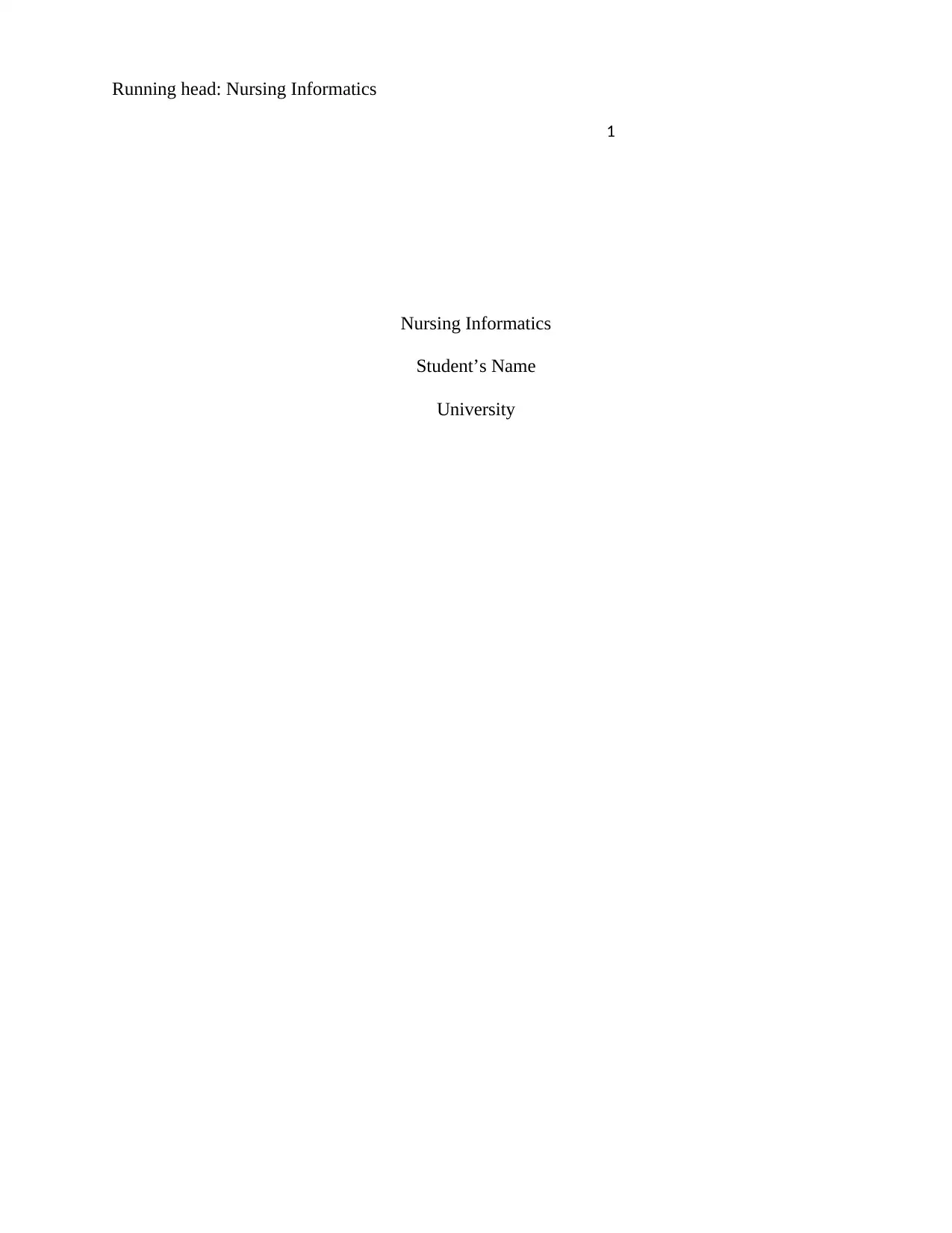
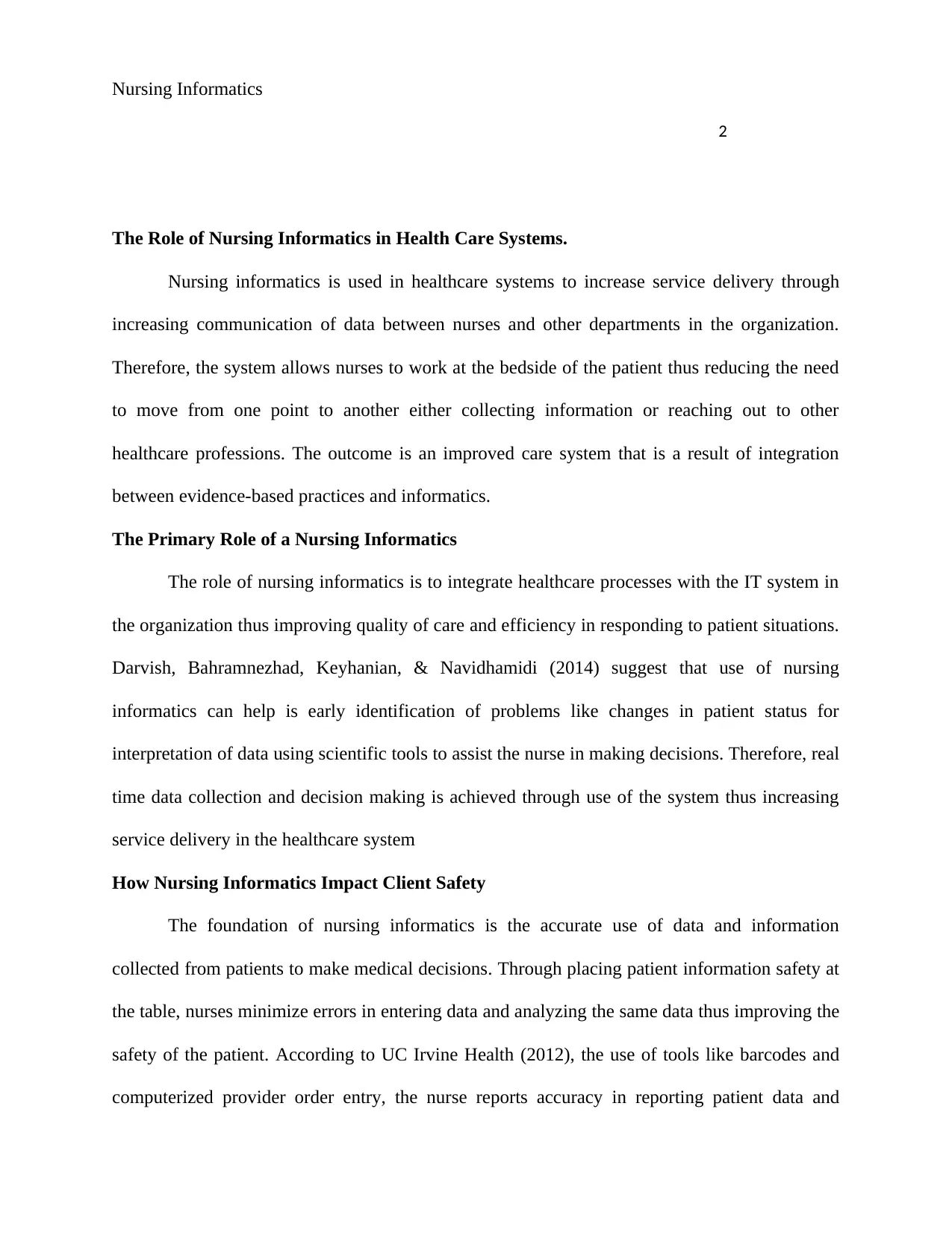
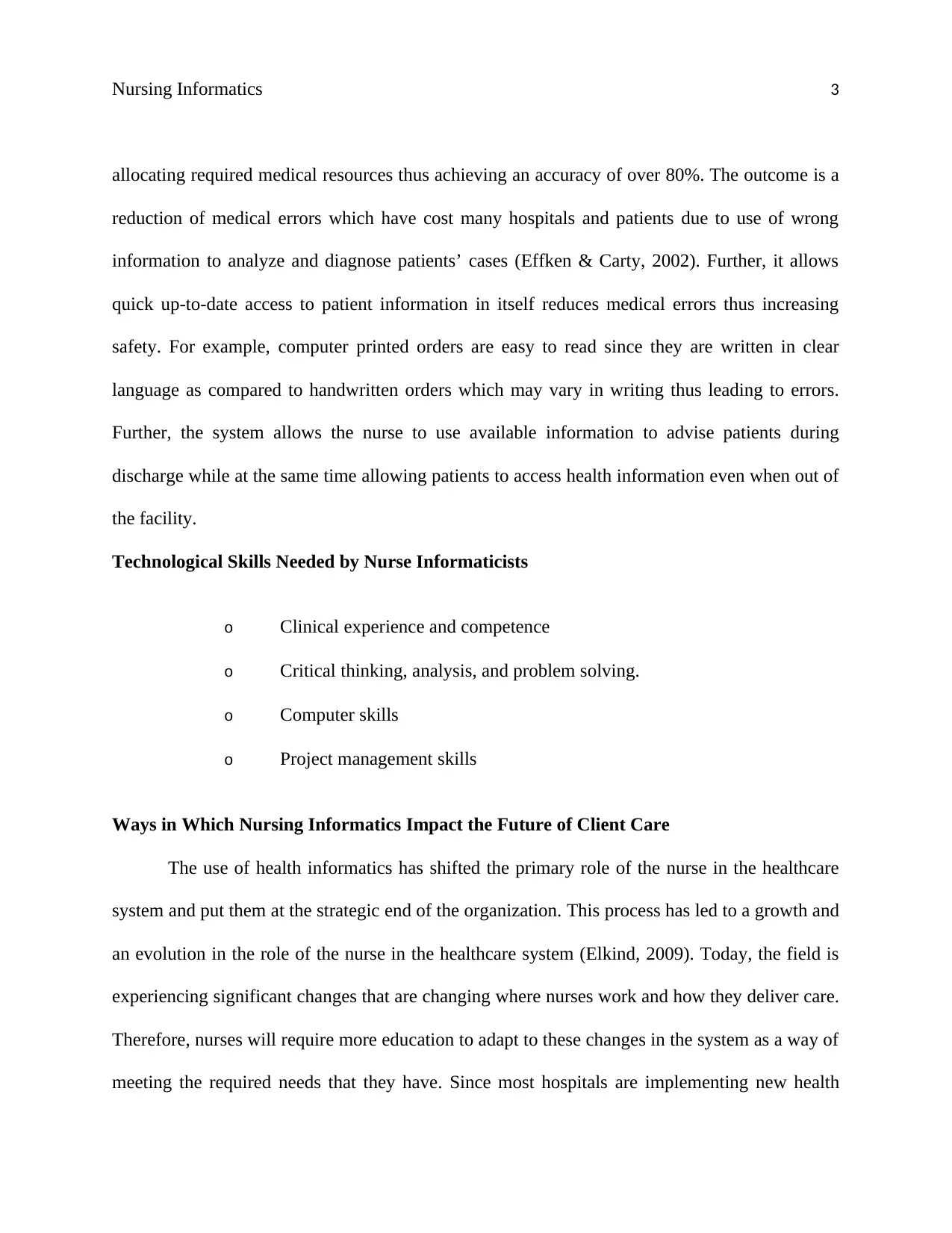

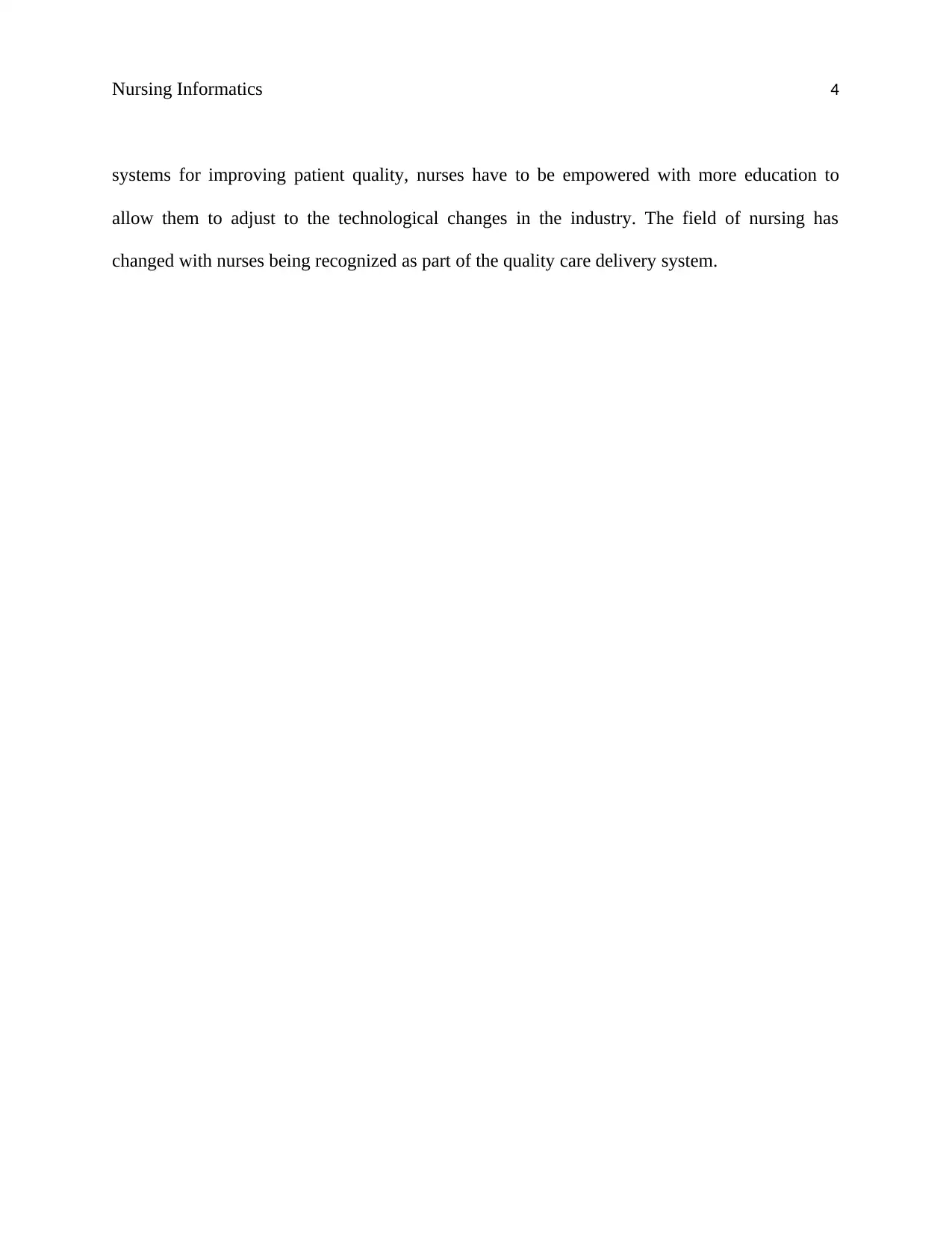
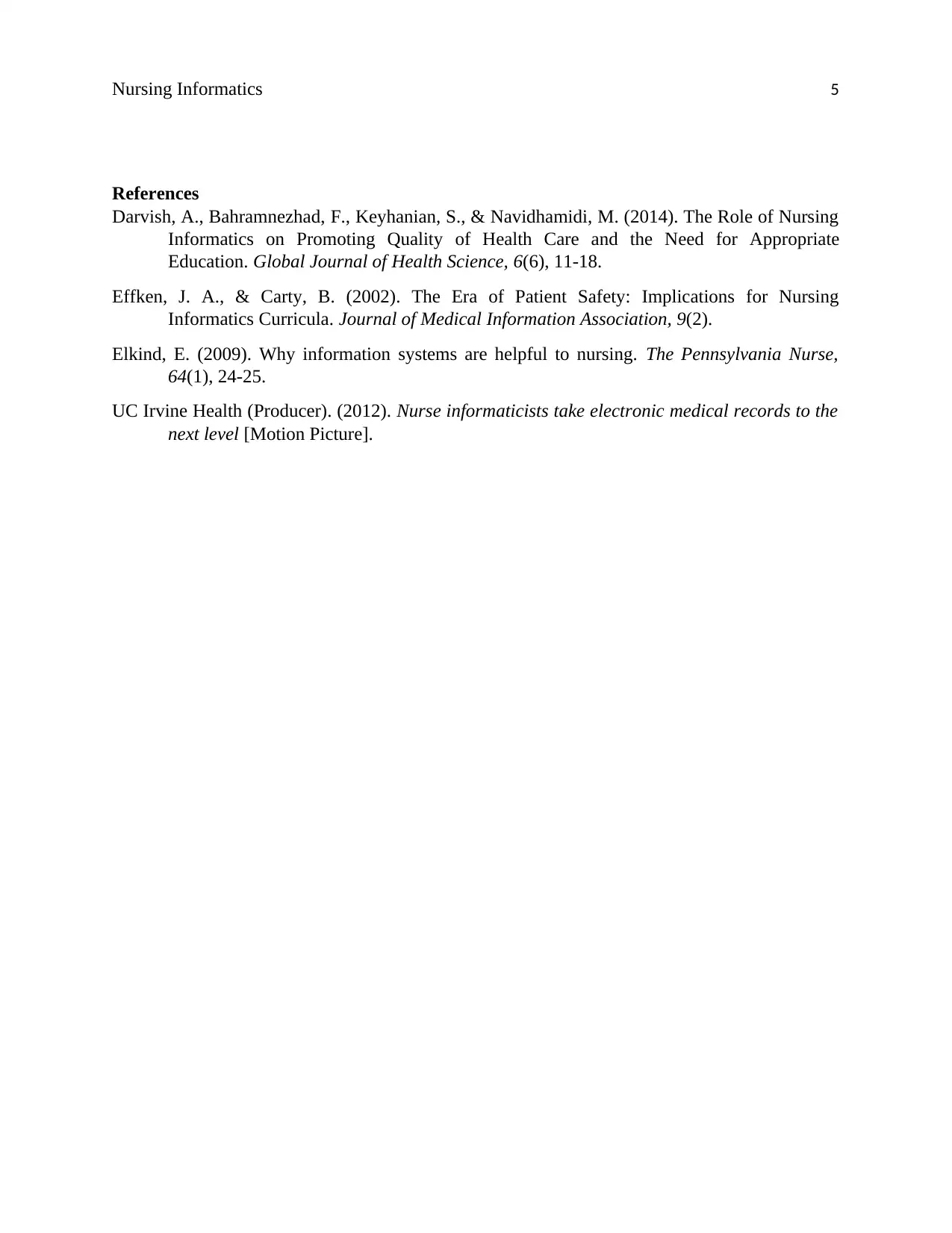






![[object Object]](/_next/static/media/star-bottom.7253800d.svg)